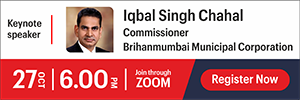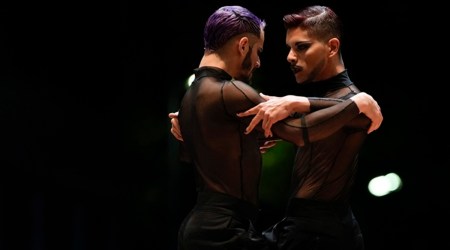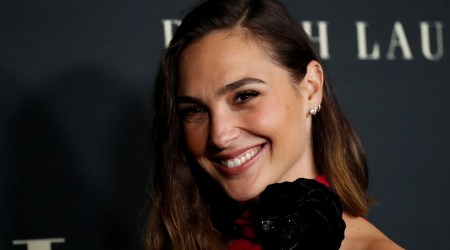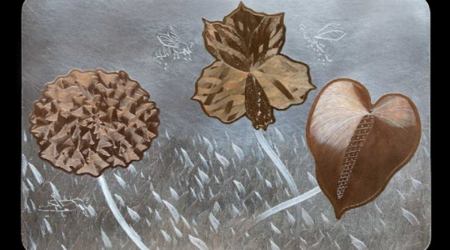 Payal Kapoor aims to empower the disabled with Rasoi ke Rahasya. (Source: PR Handout)
Payal Kapoor aims to empower the disabled with Rasoi ke Rahasya. (Source: PR Handout) Payal Kapoor, 52, from Hyderabad has always been extremely passionate about cooking. Her interest developed while training for hotel management. But loss of eyesight at the age of 22 due to cerebral attack was definitely hard to cope with. She, however, kept her love for cooking alive. In fact, during the lockdown last year, she used her culinary skills to help out other visually impaired people — by sharing kitchen tutorials through a podcast on YouTube called Rasoi ke Rahasya.
Payal recently became a recipient of the 12th Mphasis Universal Design Awards 2021 by National Centre for Employment of the Disabled People (NCPEDP). In an email interview, she talked about the inspiration behind her cooking channel, difficulties during the pandemic and more. Excerpts:
How and when did you get interested in cooking? What do you like to cook the most?
My true interest in cooking started during my course in hotel management. All the new types of cuisine, ingredients, and methods were fascinating. I enjoy baking most; I find it therapeutic, and the precision required in baking makes it that more challenging, despite knowing exactly what to do with a recipe.
What inspired you to start Rasoi ke Rahasya? What has the response been like?
I have always been a go-to person whenever anyone in the community for blind people needed any help with matters related to the kitchen. When the country went into lockdown with less than a couple of days’ notice, a lot of people were left stranded in their homes — some of whom were in cities of work, far away from their own homes. Suddenly, there was nobody to cook food for them, or places to buy their food.
The blind and other disabled persons were hit the most. At that point, some newbies wanted to understand various nuances of cooking safely, and the basics. While there is a lot of material available on the internet, nobody catered to the specific needs of the blind. It was at this stage that I began putting together small voice notes to distribute on WhatsApp groups. It was so well received, and appreciated, the idea to archive them on YouTube was born, and the naming done. The response from the community and beyond has been great. So many experienced cooks–both blind, and sighted, have said the instructions in the format of a podcast (detailed audio tutorials), have been very helpful. Parents sending their children to live on their own, have referred the channel to them. However, the analytics on the channel don’t seem very robust, mainly because it takes a professional digital marketing person to understand how to make it get those numbers.
Elsewhere, you said that it took you six years to get used to loss of vision. How did you cope and what kept you motivated?
It was the toughest phase of my life–to keep my head above water, and not give in to the desire to simply give up. My biggest support system was my family, who stuck by me. My parents, and sister, along with some close friends, kept pushing me to not give up. Sometimes with gentleness, and at other times, with a little force; but, they kept at it. I think, after a point I got fed up of being in a state of constantly depending on others, and wanted to break free, and take responsibility for my own life. I think that was what finally motivated me to seek professional help, and look for active rehabilitation. It also made me believe in the strength of the resilient human spirit, that resides within all of us, but comes to the fore only when we summon the will to do something.
Do you think our country lacks in providing equal opportunities/social recognition to the disabled?
There is a definite need for better understanding of the lives of the disabled in our country. Equal opportunity is not something that comes as a default, either. We have, for a long time, had to live life as second-class citizens, and it is not just in the social or work environment. The families of so many persons living with disabilities, live in a state of denial, and would rather not have anyone know they have a disabled child at home. If that is the state, then the larger picture is bound to be gloomy as well. There have been some changes with the new RPwD Act 2016 that has changed how the world around us views disability. It is a beginning, but we still have a very long way to go. It is still the onus of the disabled individuals to fight their battles, and unless they are not part of a community, often get left in their isolated spaces, and alone.
Rasoi ke Rahasya is a way of empowering the visually impaired. What do you think can be done to empower the differently abled?
Education is key. Once they are given a level playing field, the disabled are no different from any other individual. Not only in colleges, but also creating awareness of their rights, helping them network, and understand their own self- worth. There are so many avenues now available for the disabled to integrate themselves with organisations, or informal groups, the sense of community, and the knowledge they belong, go a long way in ensuring they are not alone this will help build them as people, and that is needed to build a strong, empowered community.
What were the challenges amid the pandemic?
The pandemic has been a trial by fire for most of us. For me, personally, it was tough, since I live with elderly parents, and the worry for emergencies was very real. With my outdoor independence taken away from me, the sense of vulnerability was huge. When we were infected by Covid ourselves, the ability to take care of them without being able to see, and the inability to read the pulse oximeter was scary. It is not an experience I want to ever have to live through. My mother had to be hospitalised, and when she came back and needed oxygen, managing the machine was not easy. The unprecedented nature of the pandemic left us ill-prepared.
What are your future plans for Rasoi ke Rahasya?
Rasoi Ke Rahasya has been a voluntary endeavour, thus far born in a time when we only had voice to use. I hope to take this skill to people with disabilities, physically and teach them how to do all the things I have spoken of in my podcast. I also hope to garner support from the food industry, hoping they recognise the necessity for this important life skill to reach the many blind persons. If there is support, I can then collaborate with organisations and share the skill also. I hope this will dispel some of the misconception that people with blindness can’t cook, and have no possibility of making careers in the hotel industry, and become chefs. It is a matter of working around the disability; working in conjunction with the existing skills. I want to be able to reach audiences around the world and make Rasoi Ke Rahasya a brand that enables and empowers in a space, so far unexplored. I also see this as a great sensitisation tool- for corporates, children, and the community as a whole. This can be an experience that stands apart–being taught by a blind expert. I am hoping to build a community, which will replace an individual endeavour.
📣 For more lifestyle news, follow us on Instagram | Twitter | Facebook and don’t miss out on the latest updates!
- The Indian Express website has been rated GREEN for its credibility and trustworthiness by Newsguard, a global service that rates news sources for their journalistic standards.




































